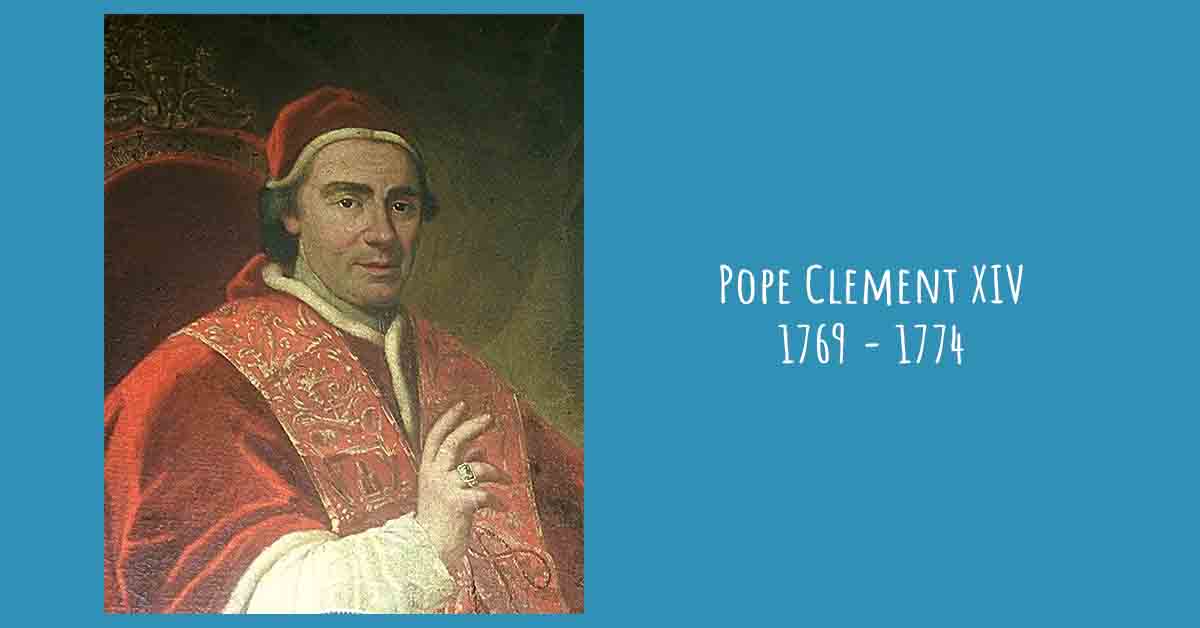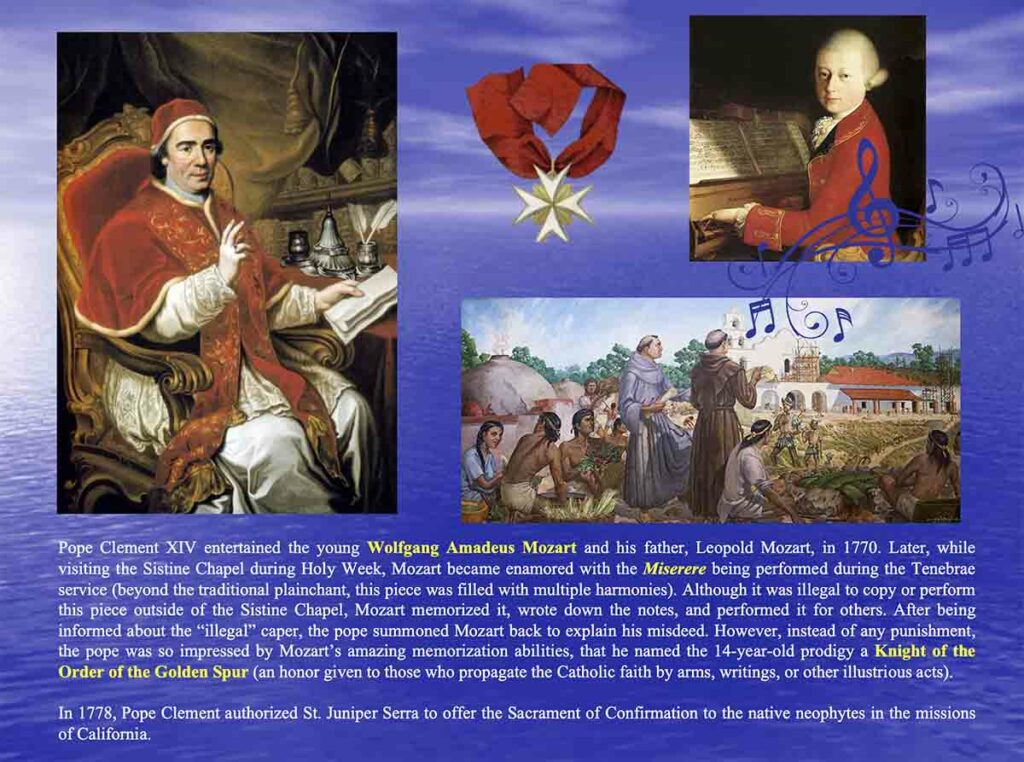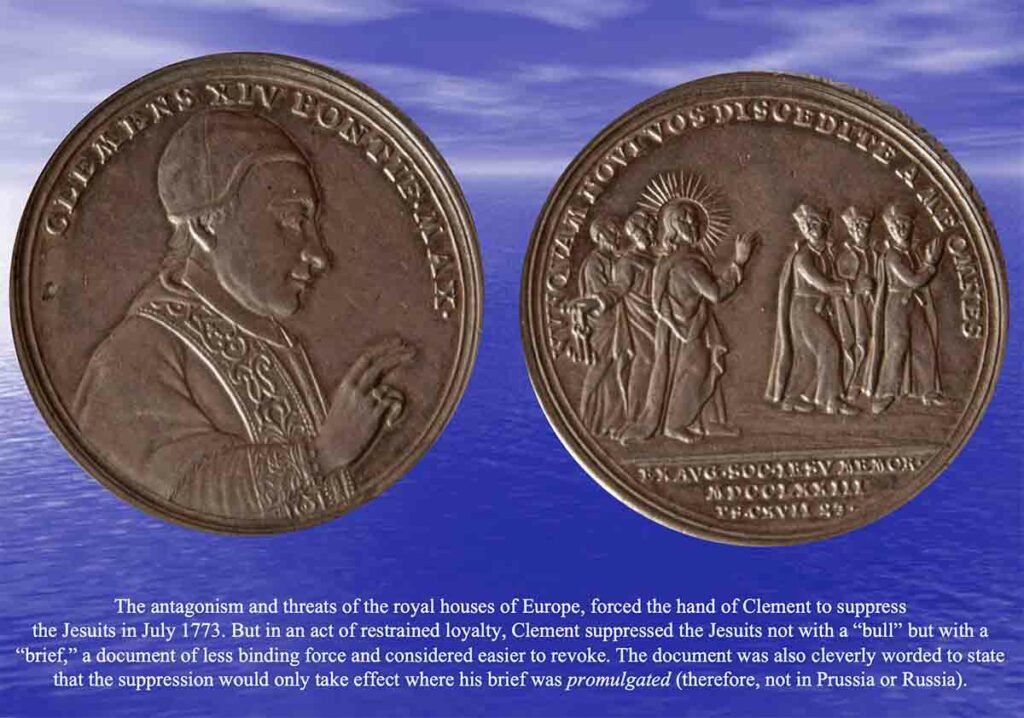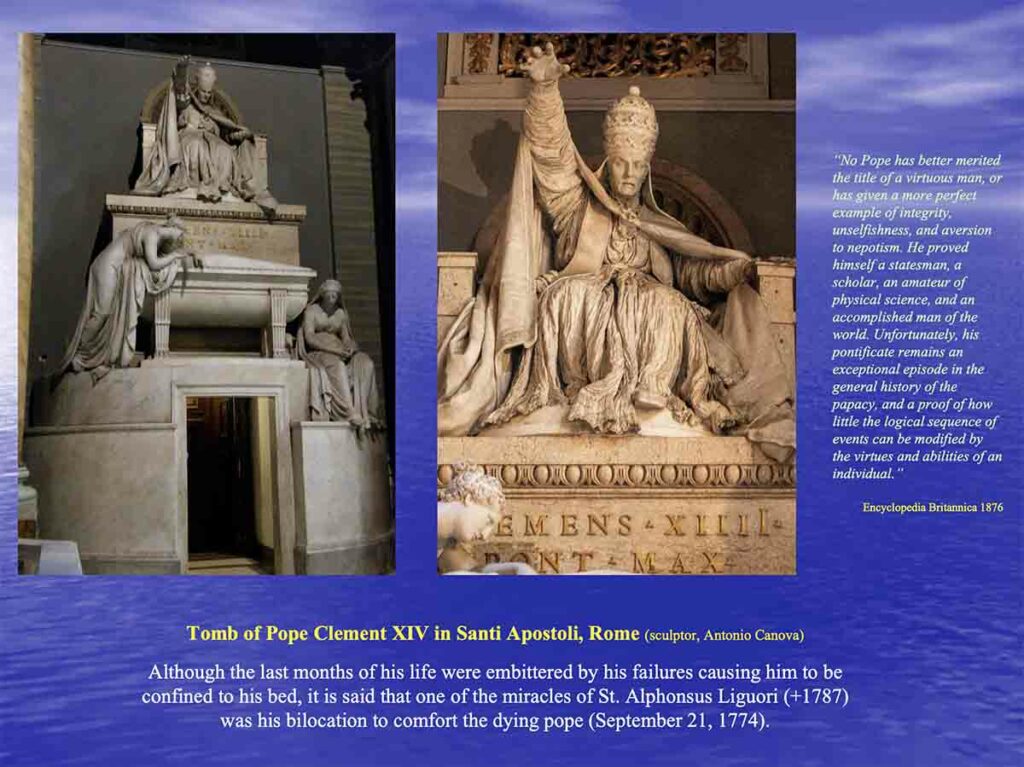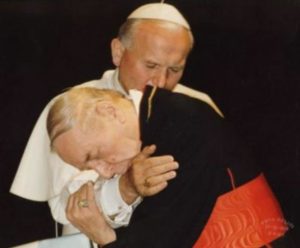Franciscan Popes - Part 9
(An excerpt from a presentation by friar Joseph Wood OFM Conv.
Read the introduction to this series
Read Part 2 of the the series: Pope Gregory XI?
Part 3: Pope Nicholas IV
Part 4: Pope Alexander V
Part 5: (pope) Nicholas V
Part 6: Pope Sixtus IV
Part 7: Pope Julius II
Part 7b: Cardinal Nephews
Part 8: Pope Sixtus V
Part 8b: Pope Sixtus’ Notable Relatives)
Lorenzo Ganganelli felt a calling to Franciscan life at an early age but his mother preferred a diocesan vocation thinking he could achieve greater things. Thus, she took her son to the Poor Clare mystic, St. Veronica Giuliani, who ironically prophesied that he would be more greatly honored by the Church as a Franciscan. Entering the Order, he received the name “Lorenzo Francesco.”
He was always considered a kindly, poised, and gracious man; a good preacher and a patient teacher. He achieved a doctorate then taught at Milan and Bologna. He received the cardinal’s hat in 1759 and was elected pope in 1769. He worked hard for the building up of Catholic missions in Africa, Asia, and America. He favored both sciences and the arts. And although several other important events took place during his pontificate, the most notorious event was the suppression of the Jesuits.
Because of their influence and notable presence, the Jesuits were somehow involved in every major controversy of the times, especially regarding the rights of indigenous people in the missions of the New World and Asia. Increasingly, the Jesuits were at odds with the colonizing powers of Europe. Calumnies, false rumors, and distorted interpretations of events were spread in order to destroy the Jesuits’ reputation. Clement was anguished by the situation. Therefore, he preferred to calm the storm by quietly tempering the Jesuit influence from within. But the European monarchs were vehement and threatened the peace and rights of the Church in their kingdoms.
Finally in 1773, having weighed the situation with a heavy heart, Clement balanced the good of the overall Church by formally suppressing the Society of Jesus. However, in a show of loyalty to those whom he officially renounced, Clement carefully omitted any false charges of personal misconduct or unorthodox teaching in the papal document of suppression. The Jesuits were restored during the reign of Pius VII (1800-1823).
Next – the Secular Franciscan Popes

